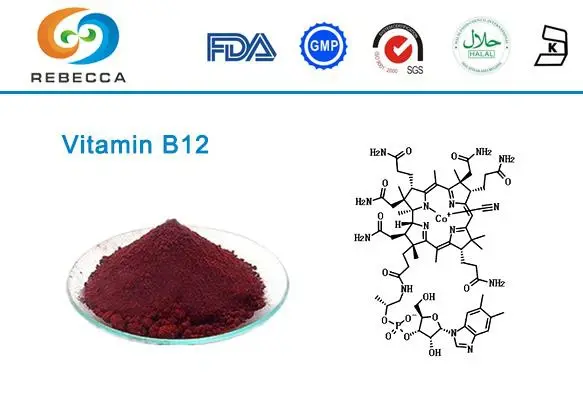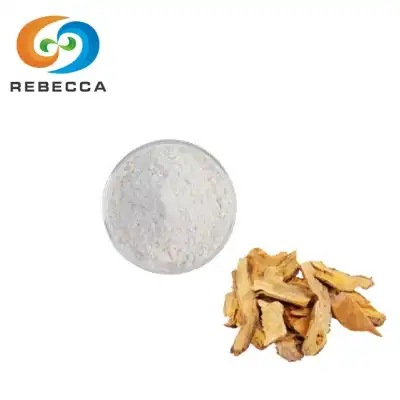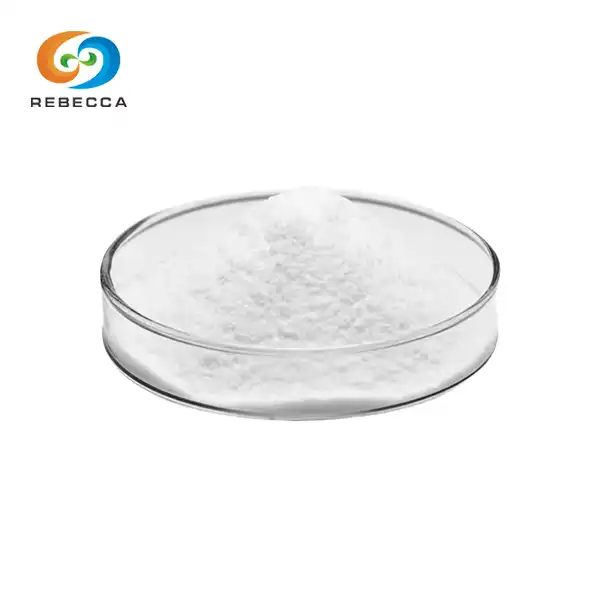Does vitamin B12 remove dark spots?
Vitamin B12, also known as cobalamin, is a crucial nutrient that plays a vital role in various bodily functions. While it's primarily associated with red blood cell formation and neurological health, many people wonder about its potential effects on skin health, particularly in relation to dark spots. In this comprehensive guide, we'll explore the relationship between vitamin B12 and skin health, examining whether it can effectively remove dark spots and addressing related skin concerns.

Effects Of Vitamin B12 On Skin
Vitamin B12 is essential for maintaining healthy skin, and its effects on the skin are multifaceted:
- Cell regeneration: B12 supports the production of new skin cells, which is crucial for maintaining a healthy, youthful appearance.
- Collagen synthesis: This vitamin plays a role in collagen formation, helping to maintain skin elasticity and firmness.
- Hydration: B12 may help improve skin hydration by supporting the skin's barrier function.
- Inflammation reduction: Some studies suggest that B12 might have anti-inflammatory properties, which could benefit skin health.
- Wound healing: Adequate B12 levels are important for proper wound healing and tissue repair.

While these effects are beneficial for overall skin health, it's important to note that the direct impact of vitamin B12 on specific skin concerns like dark spots is less clear-cut.
Can Vitamin B12 Remove Dark Spots?
The question of whether vitamin B12 can remove dark spots is complex and not straightforward. Here's what we know:
- Indirect effects: While vitamin B12 doesn't directly target dark spots, its role in cell regeneration and overall skin health may indirectly contribute to a more even skin tone over time.
- Limited research: There's a scarcity of scientific studies specifically examining the effects of vitamin B12 on hyperpigmentation or dark spots.
- Topical applications: Some skincare products contain vitamin B12, claiming to help with various skin issues, including uneven skin tone. However, the efficacy of topical B12 for dark spots is not well-established.
- Combination treatments: In some cases, vitamin B12 might be used in combination with other ingredients or treatments to address skin discoloration, but it's typically not the primary active ingredient for this purpose.
It's crucial to understand that dark spots can have various causes, including sun damage, hormonal changes, and certain skin conditions. While maintaining proper nutrition, including adequate vitamin B12 intake, is important for overall skin health, it's not a targeted solution for removing dark spots.

Vitamin B12 Deficiency And Skin Problems
While vitamin B12 may not be a direct solution for dark spots, a deficiency in this vital nutrient can lead to various skin problems:
- Hyperpigmentation: Ironically, severe B12 deficiency can sometimes cause skin hyperpigmentation, particularly on the hands and feet.
- Vitiligo-like symptoms: In rare cases, B12 deficiency has been associated with vitiligo-like skin changes, where patches of skin lose their pigment.
- Pale skin: B12 deficiency can lead to anemia, which often manifests as pale or yellowish skin.
- Angular cheilitis: This condition, characterized by cracks or inflammation at the corners of the mouth, can be caused by B12 deficiency.
- Skin rashes: Some people with B12 deficiency may experience various skin rashes or changes in skin texture.
These skin issues underscore the importance of maintaining adequate B12 levels for overall skin health. However, it's important to note that addressing a B12 deficiency, while crucial for overall health, is not typically a primary treatment for existing dark spots.

Other Factors Affecting Skin Pigmentation
When discussing dark spots and skin pigmentation, it's essential to consider other factors that play a significant role:
- Sun exposure: UV radiation is a primary cause of dark spots and hyperpigmentation.
- Hormonal changes: Conditions like melasma are often triggered by hormonal fluctuations.
- Inflammation: Post-inflammatory hyperpigmentation can occur after skin injuries or inflammation.
- Genetics: Some people are more prone to developing dark spots due to their genetic makeup.
- Age: As we age, sun damage accumulates, leading to age spots and other pigmentation issues.
Addressing these factors often requires a multifaceted approach, which may include sun protection, targeted skincare treatments, and in some cases, professional dermatological interventions.
Holistic Approach to Skin Health
While vitamin B12 alone may not be the answer to removing dark spots, it's part of a broader approach to maintaining healthy skin:
- Balanced nutrition: Ensure a diet rich in various vitamins and minerals, including B12, to support overall skin health.
- Hydration: Proper hydration is crucial for maintaining skin elasticity and promoting a healthy glow.
- Sun protection: Regular use of broad-spectrum sunscreen is vital in preventing and managing dark spots.
- Skincare routine: A consistent skincare regimen tailored to your skin type can help address various concerns, including uneven skin tone.
- Professional treatments: For persistent dark spots, consider consulting a dermatologist for targeted treatments like chemical peels or laser therapy.
Remember, skin health is often a reflection of overall health. While focusing on specific concerns like dark spots is important, it's equally crucial to maintain a holistic approach to skincare and general well-being.

The Role of Vitamin B12 Supplements
For those considering vitamin B12 supplements for skin health:
- Consult a healthcare provider: Before starting any supplement regimen, it's important to consult with a healthcare professional.
- Dietary sources: Many people can obtain sufficient B12 through diet, especially from animal products.
- Absorption considerations: Some individuals, particularly older adults and those with certain digestive conditions, may have difficulty absorbing B12 from food sources.
- Potential interactions: B12 supplements can interact with certain medications, so it's crucial to discuss this with your doctor.
While B12 supplements can be beneficial for overall health, including skin health, they should not be viewed as a direct treatment for dark spots or other specific skin concerns.
High-Quality Cyanocobalamin (Vitamin B12)
While vitamin B12 plays a crucial role in overall skin health, its direct effect on removing dark spots is limited. Maintaining adequate B12 levels is important for general skin health and may indirectly contribute to a more even skin tone. However, addressing dark spots typically requires a more targeted approach, often involving specific skincare treatments, sun protection, and sometimes professional dermatological interventions.
For those concerned about dark spots or other skin issues, it's always best to consult with a dermatologist or skincare professional. They can provide personalized advice and treatment options tailored to your specific skin concerns and overall health needs.
Remember, healthy skin is a reflection of overall health. A balanced diet, proper hydration, adequate sun protection, and a consistent skincare routine are all key components in maintaining radiant, healthy-looking skin.
For more information about vitamin B12 and its potential benefits for skin health, or to inquire about our high-quality Cyanocobalamin (vitamin B12) products, please don't hesitate to contact us at information@sxrebecca.com. Our team of experts is ready to assist you with any questions you may have about vitamin B12 and its role in skin health.

References
- Journal of Clinical and Aesthetic Dermatology: "The Role of Vitamins and Minerals in Hair Loss: A Review"
- Dermatology and Therapy: "Vitamin B12 and Skin Health: A Comprehensive Review"
- International Journal of Trichology: "Vitamin B12 Deficiency and Hyperpigmentation"
- Journal of Cosmetic Dermatology: "Topical Vitamin B12 for Skin Disorders: A Systematic Review"
- American Journal of Clinical Dermatology: "Nutritional Factors in Skin Health and Disease"
- Clinical, Cosmetic and Investigational Dermatology: "The Role of Micronutrients in Skin Health and Function"








